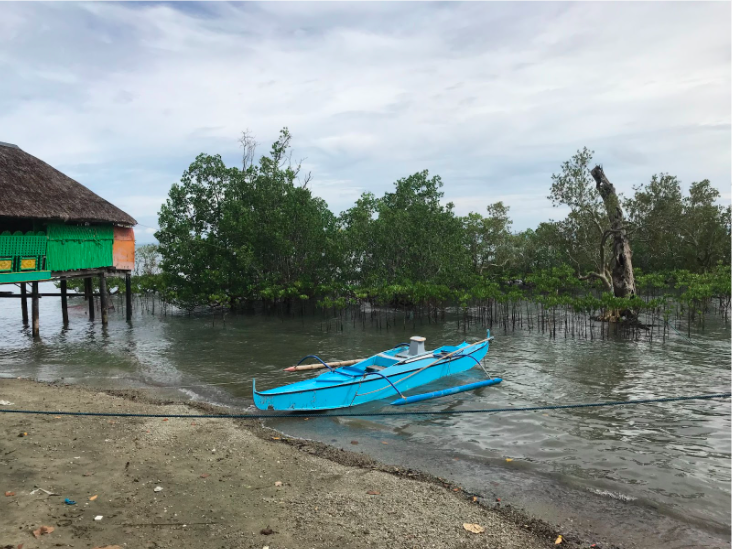SLMCCM-WHQM partners with the University of California San Francisco in strengthening local health systems to tackle the climate crisis
| March 18, 2022
 Mangroves protect the coastlines from sea level rise in Alabat Island, Quezon (Photo by Renzo Guinto)
Mangroves protect the coastlines from sea level rise in Alabat Island, Quezon (Photo by Renzo Guinto)
The Planetary and Global Health Program (PGHP) of the St. Luke’s Medical Center College of Medicine–William H. Quasha Memorial (SLMCCM-WHQM) forges a partnership with the University of California – San Francisco Institute for Global Health Sciences (UCSF-IGHS) and University of California Center for Climate, Health and Equity to embark on a year-long participatory action research project to build climate-resilient local health systems in select municipalities in the Philippines.
Co-led by Dr. Renzo Guinto, Associate Professor of the Practice of Global Public Health and Inaugural Director of the PGHP and Naomi Beyeler, UCSF-IGHS’s Climate Change and Health Initiative Lead, the project aims to pilot an innovative municipal-level intervention to support local governments and communities at the frontlines of climate change impacts. The intervention will focus on: 1) building climate change and health knowledge and capacity; 2) assisting municipal governments in assessing risks and developing climate and health plans; 3) supporting municipal leaders to mobilize financing for implementation of climate and health plans. Ultimately, the project will foster a collaborative relationship among different municipal-level stakeholders to galvanize climate-health action at the local level.

Climate change impacts are already threatening population health and health systems, especially in the world’s most climate-vulnerable countries such as the Philippines. As national and local health systems respond to the ongoing COVID-19 pandemic, urgent and holistic action to tackle climate change becomes more formidable yet remains imperative. By integrating health in local climate planning and budgeting, participating municipalities will have more tools to become ready to confront the perils that climate change is bringing to health systems. These interventions will consequently serve as an impetus to mounting local actions that enhance the overall resilience of the health system and broader community.
According to Dr. Guinto: “The current and projected health impacts of climate change are putting additional stress on health systems in the Philippines. Many vulnerable areas are already overwhelmed by multiple burdens of disease and under-resourced systems due to unsustainable funding and governance deficits.”
“Health systems around the world do not have access to the financing needed to prepare for and withstand the growing health harms of climate change,” said Ms. Beyeler. “Aligning climate and health investments to build climate resilient health systems especially at the local level will save lives now and in the coming decades in the face of the unfolding planetary emergency.”
In the coming months, the PGHP team will be conducting workshops, pursuing research activities, and developing knowledge products that will support several municipalities and local health systems in enhancing their resilience to climate change. This collaboration between SLMCCM-WHQM and UCSF-IGHS is hoped to be the start of larger initiatives that will realize PGHP’s vision to be a leader in planetary health education, research, and translation in the Philippines and Southeast Asia in the coming years.
